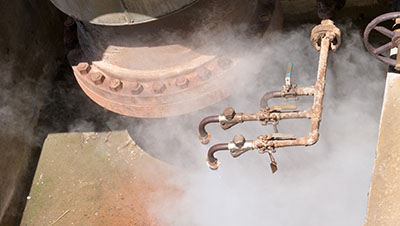We are expanding our #GeothermalFactsandStats campaign, and are starting to look at “New Concepts for High-Temperature Geothermal Well Technologies”…
New concepts for high-temperature geothermal well technologies are strongly needed to accelerate the development of geothermal resources for power generation in Europe and worldwide in a cost-effective and environmentally friendly way. The GeoWell project addresses major bottlenecks identified for geothermal wells, like high investment and maintenance costs by testing, proposing and developing innovative materials and designs that are expected to be superior to the state-of-the-art concepts.
The major problems faced today by high-temperature geothermal wells worldwide are strongly related to the harsh downhole environment which includes extreme temperatures, going far beyond the critical point of water (>374°C and 221 bars) and aggressive corrosive geothermal fluids from greater well depths. Such conditions impose significant challenges for a geothermal well, propagating corrosion of conventional carbon steel materials and inducing casing and cement sheath failures.
Current drilling and completion standards are limited to the critical temperature of water (or only up to 350°C, when it comes to the material strength reduction under high thermal stresses) and production of non-corrosive fluids. As it was proven by super-hot drilling ventures in Iceland, where both IDDP-1 (in northern Iceland) and IDDP-2 (in South-West Iceland) wells experienced temperatures going above 400°C and experienced serious casing problems.
In order to accelerate the development of geothermal resources for power generation from such high-temperature locations in a cost-effective and environmentally friendly way, great improvements are necessary. These include innovative materials, (such as new cement formulations, corrosion resistant casing materials, cladding solutions, and casing couplings), methods for assessment of geothermal well integrity and performance as well as risk and reliability analysis tools. The GeoWell (H2020) project, aims to find solutions for identified bottlenecks of a geothermal well lifecycle.
Some of the developments include flexible couplings, which are able to resist high and cyclic thermal loads exposed on couplings during production, new concepts of well monitoring with fibre optic sensing technologies which are able to in real time assess wellbore integrity, modelling of cement evolution with temperature validated with laboratory experiments and tests on corrosive resistant casing materials. Additionally, the project is aimed to raise the standard of risk analysis tools for geothermal wells to that of the petroleum industry and propose a risk management framework that can be used for any deep geothermal well. Such technology can be applied in other high-temperature geothermal locations such as Mexico, Italy or Japan which also are investigating extremely high temperature and aggressive geothermal fluids.
Please stay tuned for more #GeothermalFactsandStats
#geothermal #lovegeothermal #renewableenergy #hightemperature #corrosioncontrol #wellboreintegrity
Author: Michal Kruszewski
Source: http://geowell-h2020.eu/


